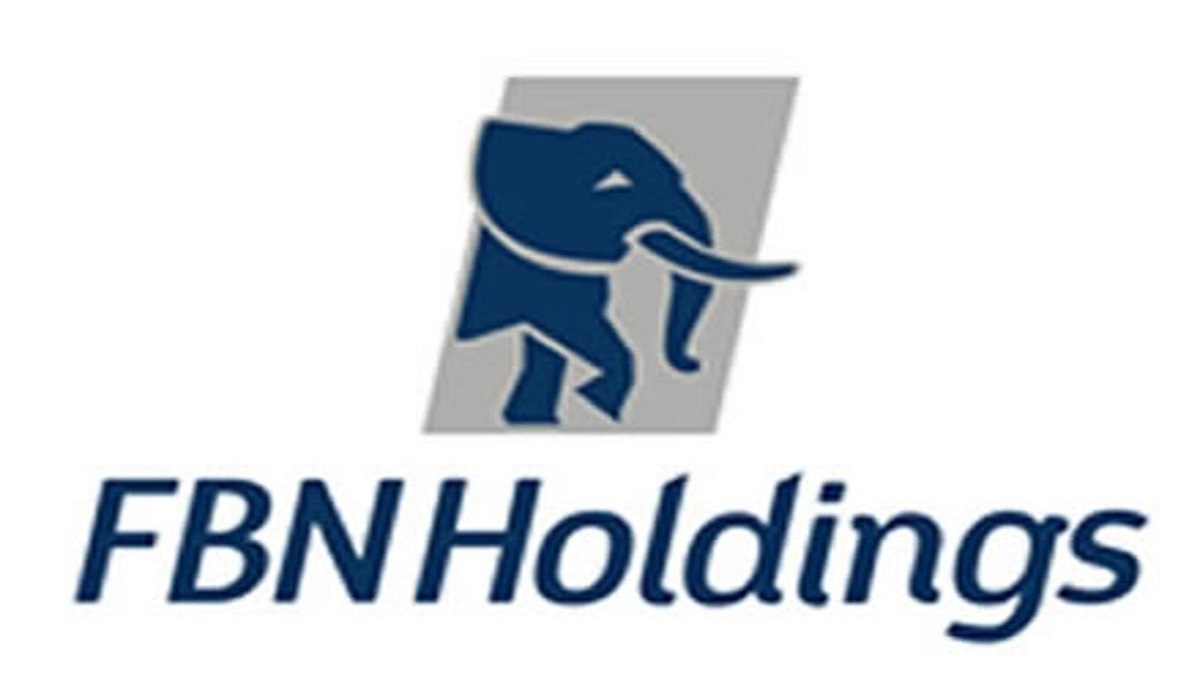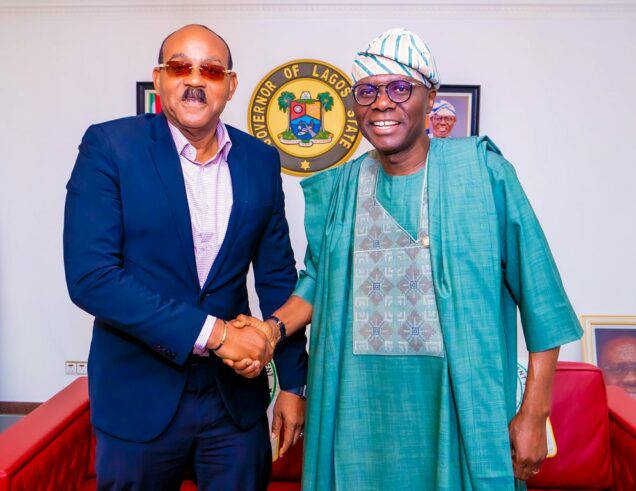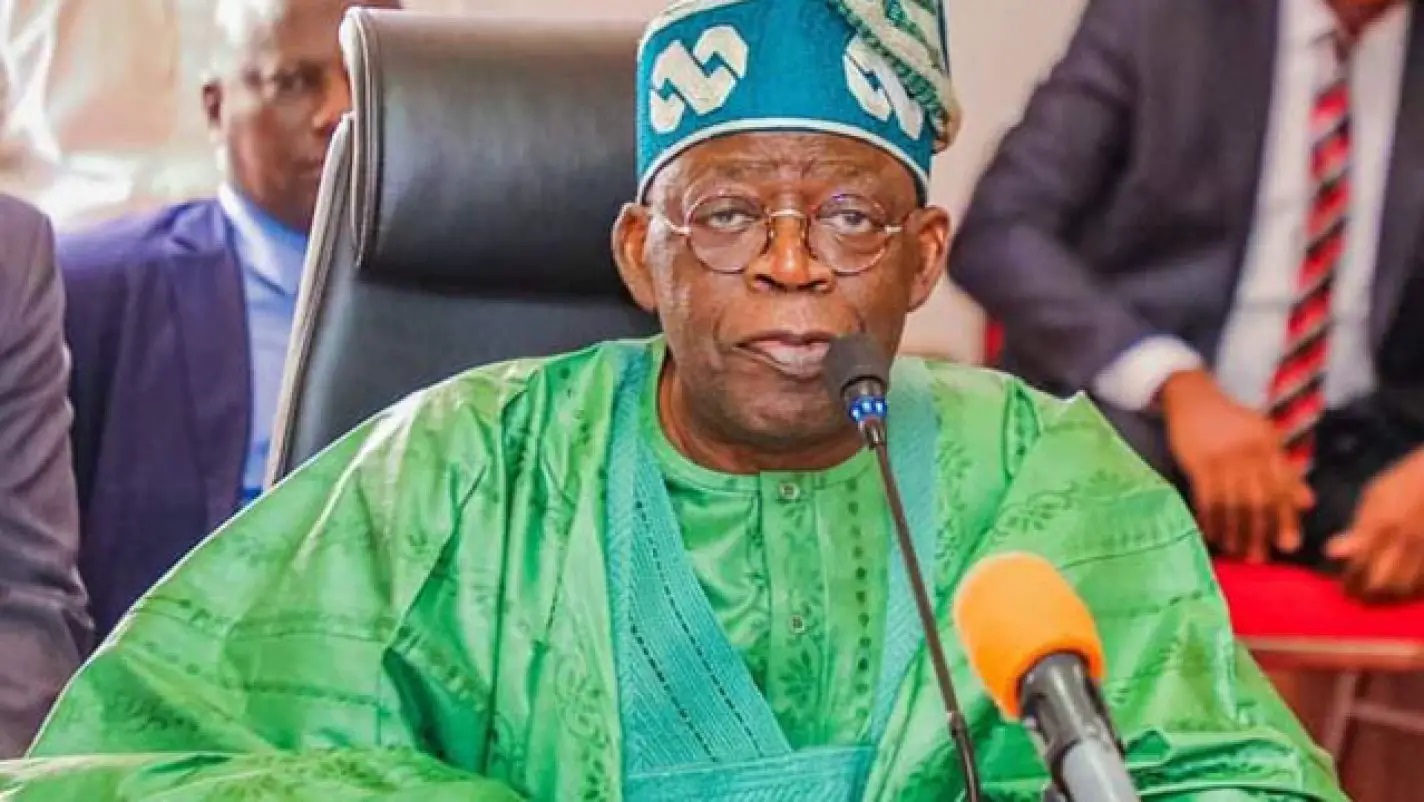Business
Railway debt servicing gulps N246bn
The Federal Government spent $548.67million (N246.11billion using the official exchange rate of N448.55 to a dollar by the Central Bank of Nigeria) to service railway-related debts between 2016 and 2022, according to Nigeria’s external debt service payments reports by the Debt Management Office (DMO).
Between January and December 2016, railway debt servicing gulped $19.99 million, with the Nigeria Railway Modernisation Project taking $11.37million and the Nigeria Abuja Light Rail Project gulping $8.26million.
By 2017, railway debt servicing gulped $21.53 million, with the Nigeria Railway Modernisation Project taking $12.14million and the Nigeria Abuja Light Rail Project incurring $9.39 million.
The total spent on servicing railway debt kept rising in 2018, taking a total of $63.92 million between January and December that year.
The Nigeria Railway Modernisation Project (Idu-Kaduna Section) took $50.81 million, the Nigeria Railway Modernisation Project (Lagos-Ibadan Section) gulped $2.82 million and the Nigeria Abuja Light Rail Project gulped $10.92 million.
The Federal Government spent $74.25 million to service railway-related debts in 2019.
The Nigeria Railway Modernisation Project (Idu-Kaduna Section) gulped $49.91million, the Nigeria Railway Modernisation Project (Lagos-Ibadan Section) gulped $12.68million and the Nigeria Abuja Light Rail Project gulped $11.66million.
The amount spent on serving railway debts kept rising the following year, as the debts cost Nigeria $121million in 2020.
The Nigeria Railway Modernisation Project (Idu-Kaduna Section) gulped $48.97million, the Nigeria Railway Modernisation Project (Lagos-Ibadan Section) gulped $21.28 million and the Nigeria Abuja Light Rail Project gulped $50.75million.
By 2021, the total amount spent on servicing railway debts had risen to $122.92 million.
The Nigeria Railway Modernisation Project (Idu-Kaduna Section) gulped $47.96million, the Nigeria Railway Modernisation Project (Lagos-Ibadan Section) took $24.08million and the Nigeria Abuja Light Rail Project gulped $50.88million.
For 2022, the only debt data accessible was for January to September as only three-quarters debt reports have been released by the DMO as of the time of filing this report.
In the first quarter of 2022, a total of $61.73 million was spent on servicing railway debts, which included $23.58 million on the Nigeria Railway Modernisation Project (Idu-Kaduna Section), $13.60m on the Nigeria Railway Modernisation Project (Lagos-Ibadan Section), and $24.55million on the Nigeria Abuja Light Rail Project.
However, by the second quarter of 2022, it was observed that no Chinese debt was serviced.
By the third quarter of 2022, a total of $63.33 million was spent on servicing railway debts, which included $23.41million on the Nigeria Railway Modernisation Project (Idu-Kaduna Section), $14.95 million on the Nigeria Railway Modernisation Project (Lagos-Ibadan Section), and $24.39m on the Nigeria Abuja Light Rail Project.
It was also noted that $580,889 was spent on the Nigerian supply of rolling stocks and depot equipment for the Abuja light rail project.
In total, the Federal Government spent $125.06 million on servicing railway debts in 2022.
The rising railway debt servicing costs occurred as the government struggled to generate revenue from the railway sector.
While the Nigerian Bureau of Statistics (NBS) has no figure on how much was earned from train services in 2016, data from the Rail Transportation reports showed that N18.09 billion was earned between 2017 and 2022.
In 2022, the revenue data was available for only two quarters – the first and second quarters.
In 2017, the Federal Government earned N1.71 billion, which included both passenger and cargo train services.
The Federal Government earned N2.52 billion in 2018, N2.84 billion in 2019, N2.03 billion in 2020, and N6.05 billion in 2021 from train services.
In the first quarter of 2022, the Federal Government earned N2.21billion but this revenue crashed massively by 66.73 per cent to N734.47million in the second quarter of this year.
In 2022, security challenges threatened revenue from train services, especially the Abuja-Kaduna train services.
Last August, it was reported that the Nigeria Railway Corporation suspended the Lagos-Kano and Ajaokuta train services due to the fear of terrorist attacks.
This was after terrorists attacked the Abuja-Kaduna train on March 28, 2022, kidnapping 168 passengers and killing eight others.
The release of the victims had been in batches since then, with the last 23 released in October, 2022.
The Managing Director of the NRC, Fidet Okhiria, recently disclosed that the Federal Government lost about N113 million due to the non-operation of trains at the Abuja-Kaduna railway for over eight months.
Economic and financial experts have warned the Federal Government that Nigeria risks losing key national assets to China in the event that it defaults in paying back loans obtained from China.
Business
Stock market review: FBN Holdings leads 41 others as investors gain N811bn

FBN Holdings Plc has topped 41 other advanced equities to pull the Nigerian Exchange Ltd. (NGX) market indices up by 1.46 per cent, week-on-week, making investors gain N811 billion.
The market, having opened for four days in the week, following the May Day holiday, had FBN Holdings leading the gainers’ table by 32.68 per cent to close at N27 per share.
Sterling Financial Holdings followed by 27.75 per cent to close at N4.88, while UACN gained 24.60 per cent to close at N15.45 per share.
Julius Berger added 23.76 to close at N72.40, while Flour Mills rose by 20.66 per cent to close at N36.80 per share.
Conversely, Nascon Allied Industries Plc led the losers’ table by 17.03 per cent to close at N43.60, University Press trailed by 16.67 per cent to close N2.05 per share.
Neimeth International Pharmaceuticals shed 14.14 per cent to close at N1.70, Berger Paints Plc declined by 9.87 per cent to close at N13.70 and Vitafoam Nigeria lost 9.81 per cent to close at N17 per share.
Meanwhile, 42 equities appreciated in price during the week, higher than 27 equities in the previous week.
Thirty-six equities depreciated in price, lower than 43 in the previous week, while 76 equities remained unchanged, lower than 84 recorded in the previous week.
Consequently, the All-Share Index and Market Capitalisation appreciated by 1.46 per cent to close the week at 99,587.25 and N56.323 trillion, respectively, in contrast to 98,152.91 and N55.512 trillion posted last week.
Similarly, all other indices finished higher with the exception of NGX Consumer Goods, NGX Oil and Gas and NGX Industrial Goods which depreciated by 0.26, 0.68 and 0.36 per cent, respectively, while NGX ASeM and NGX Sovereign Bond indices closed flat.
Meanwhile, a total turnover of 1.941 billion shares worth N32.644 billion in 35,807 deals was traded this week by investors on the floor of the Exchange, in contrast to a total of 1.839 billion shares, valued at N34.258 billion, that exchanged hands last week in 37,528 deals.
The financial services industry measured by volume led the activity chart with 1.496 billion shares valued at N22.453 billion traded in 19,225 deals, thus contributing 77.08 and 68.78 per cent to the total equity turnover volume and value, respectively.
The consumer goods industry followed with 144.722 million shares worth N5.063 billion in 4,966 deals.
In the third place was the conglomerates industry, with a turnover of 109.978 million shares worth N1.539 billion in 2,064 deals.
Trading in the top three equities, namely Abbey Mortgage Bank Plc, Guaranty Trust Holdings Company Plc and Access Holdings Plc, measured by volume, accounted for 898.940 million shares worth N14.314 billion in 5,518 deals.
These contributed 46.31 and 43.85 per cent to the total equity turnover volume and value, respectively.
Business
Caribbean PM, Sanwo-Olu mull partnership to boost economic prosperity


The Prime Minister of Antigua and Barbuda, Hon. Gaston Alfonso Brown and Lagos State Governor, Mr Babajide Sanwo-Olu are exploring areas of partnership to foster economic prosperity for their people.
Speaking during a courtesy visit to Lagos State Governor, Mr. Babajide Sanwo-Olu, at the Lagos House, Marina, the Caribbean PM said that his country is ready to partner with Lagos State and Nigeria in general in trade and investments.
The Prime Minister was accompanied by his wife, Maria Browne; Ambassador Davin Joseph; Chairman/CEO of Air Peace Limited, Dr. Allen Onyema; Nigerian Ex-International and Air Peace Ambassador, Chief Segun Odegbami and CEO of LIAT 2020 Airlines Antigua, Mrs. Hafsah Abdulsalam.
Speaking during the courtesy visit, Prime Minister Browne said the key objective of his country is to strengthen the relationship between Antigua and Barbuda and Nigeria, as well as the Caribbean and the rest of Africa.
He said, “I believe Africa has a significant amount of resources, and literally every African country can become a developed country. I am of the view that African countries can do even better than the Republic of China.”
“Our aspiration for Nigeria is to see Nigeria become a developed country within the next decade or two. And we want to make sure that we are an early mover in the Caribbean to establish close linkages with Nigeria to increase trade and investment. The Caribbean and Africa must unite and work together to bring prosperity to our people.”
Speaking during the courtesy visit, attended by Lagos First Lady Dr. Ibijoke Sanwo-Olu and some members of the Lagos State Executive Council, Governor Sanwo-Olu said his administration will partner with Antigua and Barbuda in entertainment, arts, culture, and technology.
He said, “We are building a bridge. The Caribbean is the sixth region of Africa. We can partner in the areas of culture, tourism, arts, and entertainment because we have a lot of things in common. We can quickly begin to ship between the two regions all of the things that are common to us.
“Our tourism potential, arts and culture, and the kind of music we listen to can infuse into our economy very quickly, and we will begin to see the benefits among us and the two regions.
“Technology is very important because it knows no boundaries. We say we are the tech hub of Africa. All of the unicorns in tech start-ups have their origins in Lagos. So, technology can also be the strong handshake that we require.
“The time is now, and we all need to seize the opportunity. Mr. President has laid the background for us. He has said that he wants Nigeria to have a one trillion GDP within the next couple of years, and that is the kind of thing we are saying.
“Nigeria cannot just sit back and be a developing country. We have to take that narrative up. If China and India can do it, Nigeria can do it. We need to take charge and let the world know that indeed we are our brothers’ keepers, and distance should not be a hindrance.”
Also speaking, Chairman/CEO, Air Peace Limited, Dr. Allen Onyema, commended Governor Sanwo-Olu for receiving the Prime Minister Browne and his entourage.
He said the Prime Minister of Antigua and Barbuda is in Lagos to address Nigerian investors, noting that Lagos will benefit a lot from the business discussions.
He said Africa is the next destination for the entire world, noting that there is a second scramble going on for Africa. “The West, Asians, and everybody else want a piece of Africa. We must have Africa for ourselves and accommodate others,” he said.
Business
Tinubu tasks automotive manufacturers to produce quality vehicles


…assures of passage of automotive bill
President Bola Ahmed Tinubu has tasked automotive manufacturers to produce quality vehicles that will stand the test of time.
The President made this known when he received a delegation of the African Association of Automotive Manufacturers and the Nigerian Automotive Manufacturers Association led by the Minister of Industry, Trade and Investment, Ms. Doris Uzoka-Anite at the State House.
The delegation, which was received by the Chief of Staff to the President, Rt. Hon. Femi Gbajabiamila, thanked the host for finding time to receive them and pledged their commitment to the Renewed Hope Agenda of the President.
The Delegation consisted of the Director-General of the National Automotive Design and Development Council (NADDC); representatives of the Nigerian Airspace Management Agency (NAMA), as well as Executive Directors of Stallion Group, Toyota/CEAO and NISSAN.
According to the spokesperson of one of the associations, the purpose of the visit was to apprise President Tinubu of the efforts being made to start manufacturing vehicle/spare parts in Nigeria. They informed the Chief of Staff to the President that a legislative bill to drive the automotive industry was being drafted and reviewed by the Federal Ministry of Justice.
They emphasized the need to develop the industry, which would create massive employment for Nigerian youths and ease the burden on the much-needed foreign exchange.
The Chief of Staff to the President, while thanking the delegation for the visit, assured them of the President’s commitment to Nigeria’s industrialization as evidenced by all of the policies being implemented under his administration.
He promised to assist in facilitating the speedy passage of the legislative bill. He, however, implored that locally-manufactured vehicles should be of the highest quality that will stand the test of time and complement the Federal Government’s efforts in revitalizing the industry.
He also urged the associations to look into producing vehicles that would be affordable for all categories of Nigerians at a time when President Bola Tinubu is set to provide consumer credit for millions of Nigerians to purchase vehicles and other important goods and services.
-
capital market2 years ago
Rt.briscoe, FBNH, Others halts negative performance of stock market
-
Finance3 months ago
Court orders Sen. Victor Umeh to repay N136m bank debt to AMCON
-



 Abuja Update2 months ago
Abuja Update2 months agoUNDP, FG partnership needed to achieve inclusion, equity- Minister
-
Abuja Update1 month ago
Banks drive stock market performance with N147bn gain
-



 Business2 weeks ago
Business2 weeks agoTingo Group unveils Tingo Electric, Tingo Cola drink at Lagos launch
-



 Health3 weeks ago
Health3 weeks agoCapacity training will reduce migration of health workers- NPHCDA
-
News4 months ago
Oil thieves sponsoring malicious media campaign against Navy – Spokesman
-



 Infotech1 month ago
Infotech1 month agoWorld Backup Day: NITDA urges Nigerians to ensure backup of data




